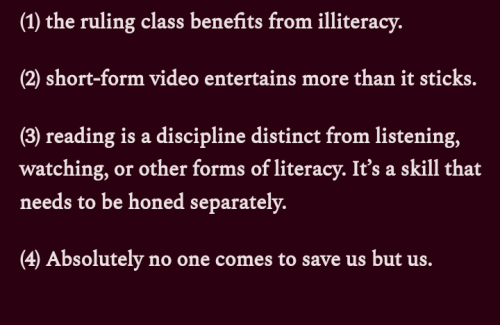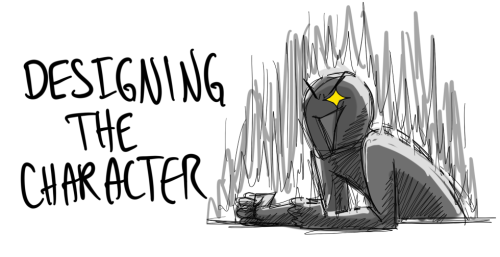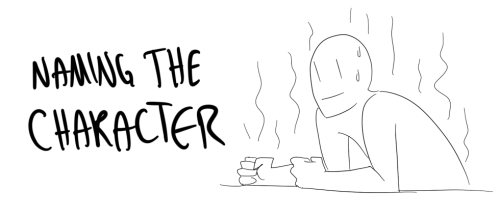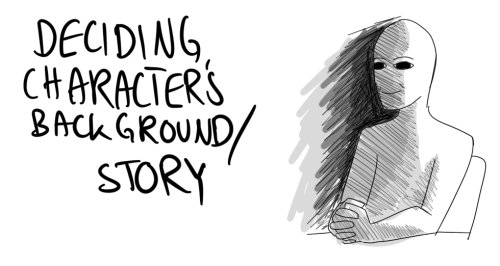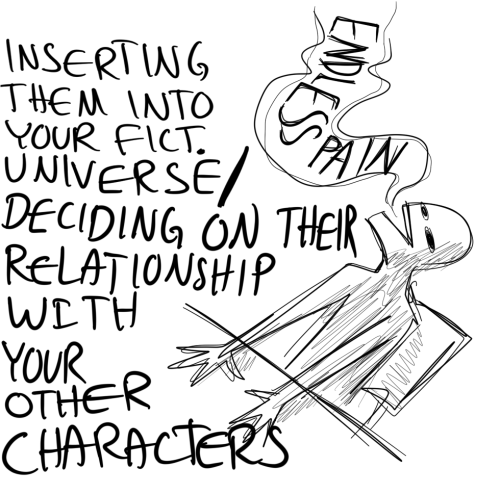Joy Sullivan, “Solo“, Instructions For Traveling West

Joy Sullivan, “Solo“, Instructions for Traveling West
More Posts from Sparklingsilvermagnolias and Others
Things women created and discovered!
All men
Francium (elemental)
Torpedoe radio guidance/navigation systems
Dishwasher
GPS
Wi-fi
Structure of the Milky Way
Kevlar
The Earth's inner core
Aciclovir - an antiviral drug used for the treatment of herpes simplex virus infections, chickenpox, and shingles
Azathioprine - an Immunosuppressive drug used in rheumatoid arthritis, Crohn's disease, ulcerative colitis, and in kidney transplants to prevent rejection
Flossie Wong-Staal was the first scientist to clone HIV and map its genes.
Pyrimethamine was initially developed by Nobel Prize winning scientist Gertrude Elion as a treatment for malaria.
Disposable diapers
Child carriers
Vaccine for whooping cough
The galaxy rotation problem - important to the discovery of dark matter
Radio astronomy - Type I and Type III solar radio bursts
That stars are primarily composed of hydrogen and helium
The new outer arm of the Milky Way - In 2004, astrophysicist and radio astronomer Naomi McClure-Griffiths identified a new spiral arm of the Milky Way galaxy
Radiation
Radon (elemental)
Kinetic energy
Heavy elements in cosmic radiation
Beta particles are electrons
Nuclear shell
Astatine (elemental)
Nuclear fission - helped in the creation of nuclear weapons
Rhenium (elemental)
Seaborgium (elemental)
Polonium and radium (elemental)
Scotchgard
Structure of vitamin B12
Carbon Dioxide
Bioorthogonal chemistry - the concept of the bioorthogonal reaction has enabled the study of biomolecules such as glycans, proteins, and lipids.
Central heating
Square-bottomed paper bag
Correction fluid (white-out)
House solar heating
Wrinkle-free fiber
Windshield wipers
Car heater
Airplane mufflers
Underwater telescopes for warships
Written computer program
Written (programming) language
Chocolate chip cookies
Pizza saver
Mint chocolate chip ice cream
DNA structure
Sex chromosomes
Lactic acid cycle
Transporsable elements
Gap genes
Myers - Briggs Type Indicator
It is incredibly important to train yourself to have your first instinct be to look something up.
Don't know how to do something? Look it up.
See a piece of news mentioned on social media? Look it up.
Not sure if something is making it to the broader public consciousness, either because you don't see it much or you see people saying nobody is talking about it? Look it up.
Don't know what a word means? Look it up.
It will make you a better reader and a better writer, but it will also just make you more equipped to cope with the world.
So often, I see people talking about something as though it is the first time anyone has ever acknowledged it, when I've been reading reports about it on the news for months or years. Or I see someone totally misinterpreting an argument because they clearly don't know what a word means--or, on the other hand, making an argument that doesn't make sense because they aren't using words the right way.
Look things up! Check the news (the real news, not random people on social media)! Do your research! You (and the world) will be better for it.
Reading fantasy again, I've started thinking about how odd it is how in books like that, the non-human races invariably scoff at human frailty and vulnerability, even those that they'll call friends. Like that's mean?? Why would you be a dick to your friend who you know is not capable of as much as you are, and it's not their fault they were born like that. That's mean.
Like consider the opposite: Characters of non-human races treating their human companions like frail little old dogs. Worrying about small wounds being fatal - humans die of small injuries all the time - or being surprised that humans can actually eat salt, even if they can't stomach other spicy rocks. Being amazed that a human friend they haven't seen in 10 years still looks so young, they've hardly aged at all! And when the human tries to explain that they weren't going to just unexpectedly shrivel into a raisin in 10 years, the longer-lifespan friend dismisses this like no, he's seen it happen, you don't see a human for 10 or 20 years and they've shriveled in a blink.
Elves arguing with each other like "you can't take her out there, she will die!" and when the human gets there to ask what they're talking about, they explain to her that the journey will take them through a passage where it's going to be sunny out there. Humans burn in the sun. And she will have to clarify that no, actually, she'll be fine. They fight her about it, until she manages to convince them that it's not like vampires - humans only burn a little bit in the sun, not all the way through. She'll be fine if she just wears a hat.
Meanwhile dwarves are reluctant to allow humans in their mines and cities, not just out of being secretive, but because they know that you cannot bring humans underground, they will go insane if they go too long without seeing the sun. Nobody is entirely sure how long that is, but the general consensus is three days. One time a human tries to explain their dwarf companion that this is not true, there are humans that endure much longer darkness than that. As a matter of fact, in the furthest habited corners of the lands of the Northmen, the winter sun barely rises at all. Humans can survive three weeks of darkness, and not just once, but every single year.
"Then how do they sane?" Asks the dwarf, and just as he does, the conversation gets interrupted by the northland human, who had been eavesdropping, and turns to look at them with an unnerving glint in her colourless grey eyes, grinning while saying
"That's the neat part, we don't."
Ideas to Show Secret Pining
"Why don't you join me?"
"I'll give you a ride, don't worry."
*does something they don't like* "What? I like it."
*immense staring at every chance they get*
*thinking of their crush while listening to songs*
"You said you liked it so I brought it for you."
*finds ways to spend more time with them*
*friendly bullying intensifies*
"I'm looking forward to seeing you there."
"Are you gonna be there?"
"How about we sneak off, just you and me?"
"Why don't I cook for them? What's their favourite dish again?"
*aggressive google searches about how to propose to your crush*
"I'll join those dance lessons, maybe then she'll notice me."
*hopeless around them*
*failed flirting attempts*
*increased compliments*
"My problem is that I like them a little too much for my sanity."
*gets jealous* "So, are you seeing them or something?"
"Are you okay?" // "Completely okay!" (definitely not okay)
*tries to sabotage their crush's date*
*gets into trouble so they can be scolded by their crush*
"I want you to come with me, please?"
-ashlee
Do you have any tips for how to slow down time in a story?
How to slow down time
To slow down time in your story you need to use a mix of different writing ingredients: you need different descriptions that capture the reader in the moment as well as internal monologue and different sentence structures.
Detailed Descriptions:
Sensory Details: Use the five senses—sight, sound, smell, taste, and touch to describe what the character is seeing, hearing, feeling, smelling, and tasting in intricate detail.
Detailed Observations: Zoom in on small, often overlooked details. The sound a tea cup makes as it hits the ground, the way an expression on a character's face changes, the turning of heads as someone enters the room.
Slow Motion: Manipulate the time by describing how it feels like slow motion to the characters: "Time slowed down, and it felt as if the whole of humanity had decided to stop breathing for a moment."
Physical Reactions: A detailed description of the physical aspects of a scene. The movements a character makes, how their gaze turns, their breathing changes, their body begins to shake.
Psychological Aspects: Focus on the anxiety of a character looking at a clock that never seems to move, their nervousness seeping out of them
Internal Monologue:
Memories and Flashbacks: Add context by showing memories or flashbacks that relate to the situation.
Pondering: Let the character reflect on the situation, their feelings and their plan for the next steps. Let the reader explore the character's inner life.
Dialogue:
Reduced Dialogue: Dialogue brings a scene into real time. Use it thoughtfully and sparringly, with lots of inner thoughts and reactions in between.
Silence: Make use of silence between the characters which can be filled with more descriptions.
Language:
Smaller Steps: Write out each action taken, no matter how small, and focus on describing each step that happens.
Control Pacing: Use your sentence structure to create long descriptions that slow it down, and short, impactful ones to pick up the pace if needed for a moment.
More: Masterpost: How to write a story
- Jana
Writing Description Notes:
Updated 9th September 2024 More writing tips, review tips & writing description notes
Facial Expressions
Masking Emotions
Smiles/Smirks/Grins
Eye Contact/Eye Movements
Blushing
Voice/Tone
Body Language/Idle Movement
Thoughts/Thinking/Focusing/Distracted
Silence
Memories
Happy/Content/Comforted
Love/Romance
Sadness/Crying/Hurt
Confidence/Determination/Hopeful
Surprised/Shocked
Guilt/Regret
Disgusted/Jealous
Uncertain/Doubtful/Worried
Anger/Rage
Laughter
Confused
Speechless/Tongue Tied
Fear/Terrified
Mental Pain
Physical Pain
Tired/Drowsy/Exhausted
Eating
Drinking
Warm/Hot
-
 littlee-coaastline liked this · 3 weeks ago
littlee-coaastline liked this · 3 weeks ago -
 sparklingsilvermagnolias reblogged this · 3 weeks ago
sparklingsilvermagnolias reblogged this · 3 weeks ago -
 applematrix liked this · 3 weeks ago
applematrix liked this · 3 weeks ago -
 notanix liked this · 3 weeks ago
notanix liked this · 3 weeks ago -
 clareithromycin reblogged this · 3 weeks ago
clareithromycin reblogged this · 3 weeks ago -
 midnightfruitsqueeze liked this · 3 weeks ago
midnightfruitsqueeze liked this · 3 weeks ago -
 tamera20 liked this · 3 weeks ago
tamera20 liked this · 3 weeks ago -
 moondustjj liked this · 4 weeks ago
moondustjj liked this · 4 weeks ago -
 esiztenza reblogged this · 4 weeks ago
esiztenza reblogged this · 4 weeks ago -
 madame-gummi reblogged this · 4 weeks ago
madame-gummi reblogged this · 4 weeks ago -
 flesheatrrr reblogged this · 4 weeks ago
flesheatrrr reblogged this · 4 weeks ago -
 ouferrat reblogged this · 4 weeks ago
ouferrat reblogged this · 4 weeks ago -
 hallofhelios reblogged this · 1 month ago
hallofhelios reblogged this · 1 month ago -
 ghostofdiamonds reblogged this · 1 month ago
ghostofdiamonds reblogged this · 1 month ago -
 ghostofdiamonds liked this · 1 month ago
ghostofdiamonds liked this · 1 month ago -
 paintednightlock reblogged this · 1 month ago
paintednightlock reblogged this · 1 month ago -
 sisterjeska reblogged this · 1 month ago
sisterjeska reblogged this · 1 month ago -
 wallsarecrumbling liked this · 1 month ago
wallsarecrumbling liked this · 1 month ago -
 postnuclearophelia liked this · 1 month ago
postnuclearophelia liked this · 1 month ago -
 solarsaurus-rex reblogged this · 1 month ago
solarsaurus-rex reblogged this · 1 month ago -
 solarsaurus-rex liked this · 1 month ago
solarsaurus-rex liked this · 1 month ago -
 gennysuga reblogged this · 1 month ago
gennysuga reblogged this · 1 month ago -
 gennysuga liked this · 1 month ago
gennysuga liked this · 1 month ago -
 stormyseaes reblogged this · 1 month ago
stormyseaes reblogged this · 1 month ago -
 xemmadilemmax liked this · 1 month ago
xemmadilemmax liked this · 1 month ago -
 gongaforing liked this · 1 month ago
gongaforing liked this · 1 month ago -
 m1tsk1 liked this · 1 month ago
m1tsk1 liked this · 1 month ago -
 al-mahabbah liked this · 1 month ago
al-mahabbah liked this · 1 month ago -
 daylillies liked this · 1 month ago
daylillies liked this · 1 month ago -
 zentoa liked this · 1 month ago
zentoa liked this · 1 month ago -
 unbloominglily liked this · 1 month ago
unbloominglily liked this · 1 month ago -
 ghostofchaos reblogged this · 1 month ago
ghostofchaos reblogged this · 1 month ago -
 ghostofchaos liked this · 1 month ago
ghostofchaos liked this · 1 month ago -
 jahames0sauce liked this · 1 month ago
jahames0sauce liked this · 1 month ago -
 silentselcouth liked this · 1 month ago
silentselcouth liked this · 1 month ago -
 shadowycollectionmoon liked this · 1 month ago
shadowycollectionmoon liked this · 1 month ago -
 waiting-eyez liked this · 1 month ago
waiting-eyez liked this · 1 month ago -
 systematic-breakdown liked this · 1 month ago
systematic-breakdown liked this · 1 month ago -
 neuroticize liked this · 1 month ago
neuroticize liked this · 1 month ago -
 icaria-is-flying reblogged this · 1 month ago
icaria-is-flying reblogged this · 1 month ago -
 vanillamartian liked this · 1 month ago
vanillamartian liked this · 1 month ago -
 angelicpage liked this · 1 month ago
angelicpage liked this · 1 month ago -
 drownedmutt reblogged this · 1 month ago
drownedmutt reblogged this · 1 month ago -
 mycoffeeisblacklikemymagic reblogged this · 1 month ago
mycoffeeisblacklikemymagic reblogged this · 1 month ago -
 manicgods98 liked this · 1 month ago
manicgods98 liked this · 1 month ago -
 purgatoro liked this · 1 month ago
purgatoro liked this · 1 month ago -
 in-vul-nrable liked this · 1 month ago
in-vul-nrable liked this · 1 month ago -
 deputy-morgan-malone reblogged this · 1 month ago
deputy-morgan-malone reblogged this · 1 month ago

119 posts
